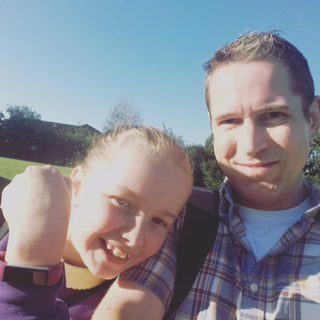Are Mental Health Apps Helpful For Anxiety?
There has been an immense level of excitement in the Regan household over the last 48 hours, with levels not far off those experienced at Christmas. And it’s all been because my daughter saved up and ordered herself a fitbit. From the moment the online order was placed she has was asking when it would arrive and whether it would come while she was at school the next day or whether it would be the evening. I reckon we were getting a dozen mentions, questions and references about it every hour!
The following evening, when it hadn’t arrived by the evening, she could be seen going and standing by the door to look out for the delivery driver, and then things moved into the realm of questioning whether the order had actually gone through ok. Perhaps it had been lost? Maybe the company had delivered it to the wrong house? Would it arrive? Would it ever arrive?!!!! (By this point I think we were all just hoping it would arrive soon!).
The no sooner had it been delivered than she was sprinting down the stairs to unbox it and get started (those running steps obviously wasted because they weren’t counted by the fitbit).
And the excitement didn’t stop because no sooner was she awake than she was wanting to look at the app to find out how she had slept (no more relying on guesswork about sleep from now on!). And then the joy of updates every ten minutes on the number of steps she had taken. I say every ten minutes but it seemed like a lot more!
Now I don’t mind all this excitement about walking and moving because it can only have a healthy goal of having her being more active. That can only be a good thing in the age of screen after screen.
And I think this is an example of technology and an app that serves people well if they want to improve their health and wellbeing.
But what about the ever growing multitude of mental health apps? Are they good for anxiety and other mental health issues?
A recently published study took a look at mental health apps to identify how they frame mental health, including who has problems and how they should be managed.
After all some apps and technology are useful because they get people like my daughter excited about walking to school rather than going there in the car!
Mental Health Apps
The recently published analysis aimed to identify how prominent mental health apps frame mental health, including who has problems and how they should be managed.
They looked at 61 mental health apps, over half of which predominantly addressed anxiety, panic and stress. They found that app materials delivered a strong message that mental health problems existed for everybody but the analysis also suggested that by ‘everybody’ the apps focused on those that were employed, white and in a family. The study also pointed out that many apps claimed ‘vague scientific authority for their approach’.
Here’s what the authors said, “We identified 2 dominant messages about mental health (1) poor of fragile mental health is ubiquitous, and (2) individuals can easily manage their own mental health problems with apps. Developers offered very limited scientific evidence for the apps’ claimed benefits.”
Now, of course, the researchers could only look at the apps at one moment in time and they may have been further developed and enhanced over time, yet we need to be aware that apps are one tool in overcoming anxiety and not necessarily the only tool, or even the right one, for everybody.
As the study says, apps could help reduce mental stigma but they can also drive a tendency towards medicalisation where normal life is defined as illness and where mild or temporary symptoms are treated as a problem and any normal reaction to life’s external stresses and challenges is not addressed (the study talks about the ‘silence around external factors’).
Self-help is important and can be very beneficial yet is just one aspect of successfully dealing with anxiety, stress and other mental health issues. Apps enable people to take personal responsibility for their mental health and well-being but can also suggest that people must do it all themselves without support. Taking responsibility for your own mental health is important but that shouldn’t mean that you must feel you have to go it alone.
Many people I work with make use of apps as part of their treatment and improvement in overcoming anxiety and other issues. Using relaxation (e.g. mindfulness and hypnosis), engaging in self monitoring and adopting cognitive and behavioural changes can all help as part of your approach to feeling better and staying feeling better. However, we all need to remember that sometimes what we are experiencing is a normal reaction and that sometimes we all need the help and support of others if we want to deal with anxiety, stress and panic issues.
I’m sure more and more apps are going to continue to come onto the market and it makes sense to employ technology yet it’s worth keeping some of the above points in mind to make sure apps work for you effectively.
And as long as the fitbit excitement lasts with my daughter, we’re going to be making use of that app to keep adding the three thousand or more steps every day that it takes to walk to her school. As moving more is good for both mental health and physical health, here’s one app that is certainly beneficial in my book.
To your success,
Dan Regan
Hypnotherapy in Ely & Newmarket
P.S. It’s a download rather than an app but certainly I keep getting great feedback on my Anxiety Relief Hypnosis Download – check it out here: Anxiety Relief Hypnosis Download
Or if you would like to explore whether hypnotherapy could be the right thing to help improve your mental health and overcome anxiety then book your complimentary consultation and let’s chat: Appointments
And many people find great value in learning about the experiences of other people – many of my clients have shared their feedback here: What People Say
Reference: Mental Health Messages in Prominent Mental Health Apps, Lisa Parker, Lisa Bero, Donna Gillies, Melissa Raven, Barbara Mintzes, Jon Jureidini and Quinn Grundy. doi: 10.1370/afm.2260Ann Fam Med July/August 2018 vol. 16 no. 4 338-342





0 Comments